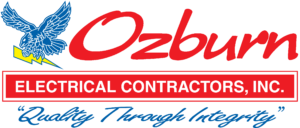There is no denying that in Covington, industry features heavily in the local economy and the need to find specialized electrical services can’t be downplayed. Industrial electrician Covington are mostly the unsung heroes of running systems found in manufacturing plants, warehousing, and large-scale production facilities. Simply put though, what does an industrial electrician do and when would you need one?
This intends to take a closer look into understanding the essential role of industrial electricians in the industrial setup of Covington.
What Does the Industrial Electrician Do?
Unlike residential electricians who are responsible for wiring houses or commercial electricians who work on offices and retail spaces, industrial electricians manage complex electrical systems in an industrial setting. They manage high voltage equipment, machinery automation systems, power distribution networks, and control systems that are critical to production processes.
An industrial electrician in Covington, for example, could be hired to install new electrical systems in a factory, do preventive maintenance on motor controls, or troubleshoot a power failure that puts everything on hold. Such assignments usually require the industrial electricians to work with the plant managers and maintenance supervisors to make sure that those electrical systems are safe, efficient, and up to code.
Common Services Offered
Some of the common services rendered by industrial electricians include:
- Equipment Installation: Any electrical machinery, from conveyor belts to robotic arms, has to be properly installed before being able to be utilized safely and effectively.
- Systems Upgrades: As a facility grows or implements new technology, many of the existing building electrical systems need to be upgraded to serve increased capacity.
- Troubleshooting and Repairs: Speedy diagnosis and fixing of electrical faults keep downtime at a minimum. This means productivity levels are maintained.
- Preventative Maintenance: Regular inspection and testing become critical in identifying before they turn into major problems.
- Control System Wiring: Industries are heavily into automation these days, and electricians deal with the wiring and maintenance of PLCs and other control equipment.
- Compliance and Safety Checks: The electrical systems must be in compliance with all the safety standards and local regulations.
Why Experience Matters
Experience goes beyond the fundamentals of electricity in industrial settings. An experienced industrial electrician in Covington has both specialized and practical training to give them grounding in dealing with high-power systems along with complicated control setups. They know how to operate safely around heavy machinery and know how to navigate the unique electrical demands of large facilities.
In addition to that, they are well acquainted with the different systems used in most of the local industries. Locally sourced knowledge can be valuable because diagnosis takes much less time and solutions are more relevant to the needs of the facility.
Signs You Need an Industrial Electrician
Not all electrical symptoms in an industrial building are obvious. Here are a few signs which can indicate the need for a qualified professional:
- Periodic power outages and equipment failures.
- Flickering lights in locations with heavy machinery.
- Frequent circuit tripping.
- Overheating electrical panel or cables.
- Plans for system expansion or new equipment installation.
These are just a few examples of signs to look out for. If there is any occurrence of these cases, delaying professional inspection can lead to larger issues like safety hazards, equipment damage, or operational delays.
Covington industries rely on industrial electricians to maintain efficient and safe operations. The right expertise goes a long way, whether in setting up a new facility or in dealing with repetitive electrical problems.
Business owners can then manage to make the right decisions, considering what industrial electricians do and when their services are really needed, to protect operations from going offtrack in productivity.

